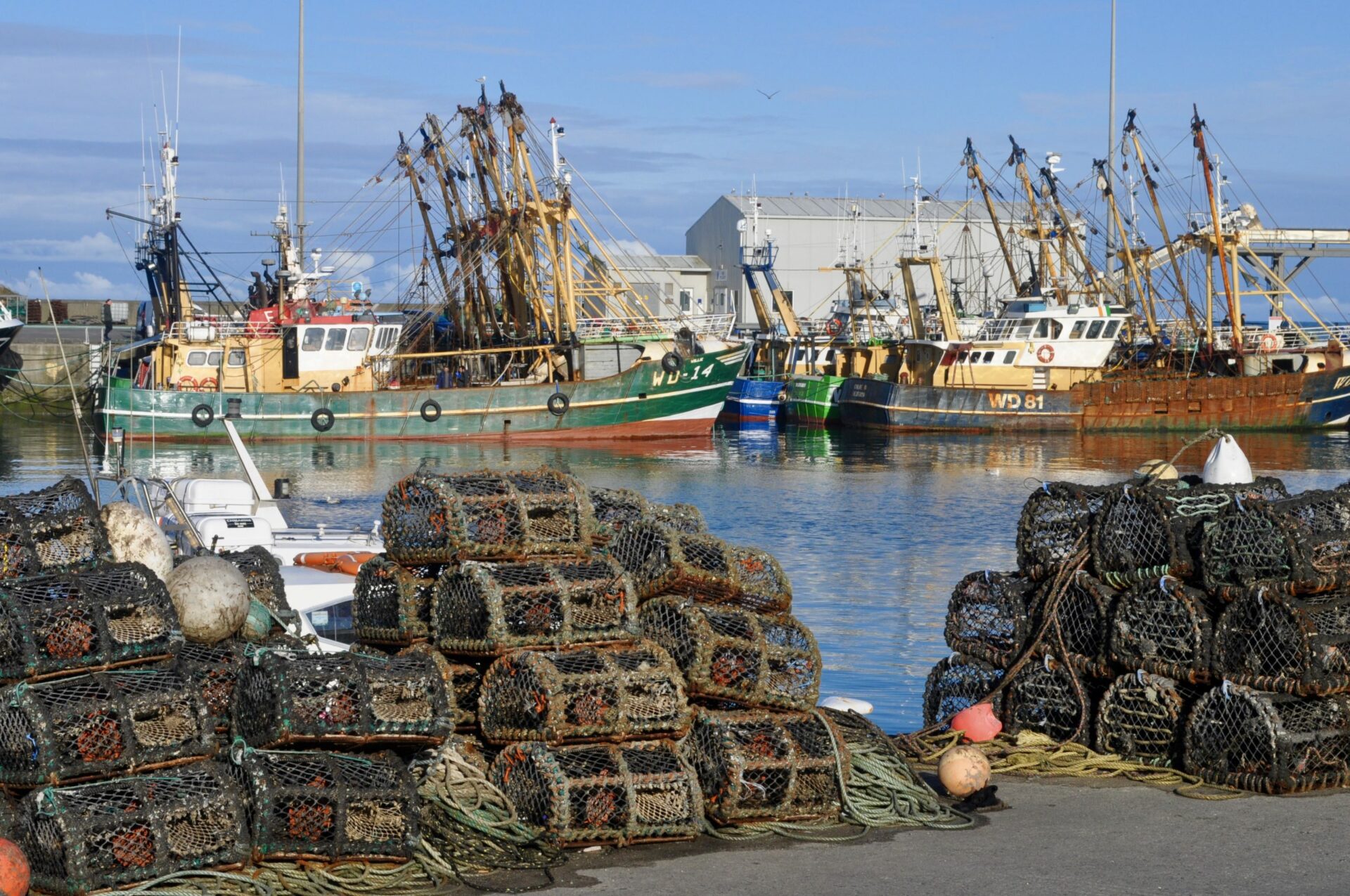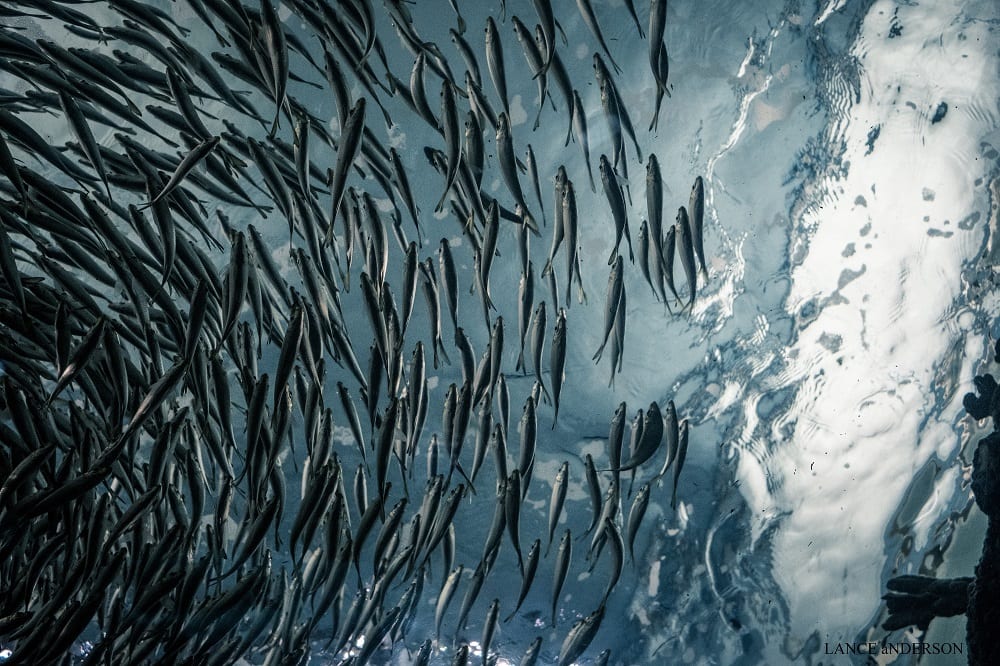European Commission Releases New Marine Action Plan Package but immediate action is needed to jump chasm from rhetoric to real change
Today, Birdwatch Ireland and Our Fish reacted to the publication of the European Commission package of EU Action Plans aimed at addressing the biodiversity and climate emergencies in the ocean and fisheries[1].
Born out of the European Green Deal and President von der Leyen’s commitment to address these joint emergencies, The EU Action Plan: Protecting and restoring marine ecosystems for sustainable and resilient fisheries (“Marine action plan”), along with the EU Action Plan: Energy transition of EU fisheries and aquaculture, and the Functioning of the Common Fisheries Policy (CFP) report, were released on February 21, following months of delay [2,3,4]. Responding to the package, Our Fish Programme Director Rebecca Hubbard said:
“While we welcome the European Commission’s Marine Action Plan’s proposal to map seabed carbon and the impact of bottom trawling in EU waters, the proposal is too little, too slow and fails to address extraction of fish and CO2 emissions”, said Hubbard. “The EU must end the ploughing up of seabed carbon stores, the excessive removal of the ocean’s carbon engineers such as fish, and the CO2 emissions from vessels burning subsidised fossil fuel. These practices are neither good fisheries management nor good carbon management and the Commission’s Marine Action Plan fails to put this right within the urgent timeframes we need.”
Ireland has failed to meet the EU’s obligation to achieve Good Environmental Status (GES) for Biodiversity, Commercial Fish and Shellfish, and Sea-floor Integrity, while the environmental status of Food Webs in Ireland’s marine environment is unknown. The figures behind these failings are even more concerning; only 18% of commercially exploited fish populations have achieved GES, while the environmental status of 60% of populations is unknown, and GES has not been achieved for the other 22%. The environmental status of 41% of non-commercial fish species is also unknown [5].
“More positively, in its report on the Evaluation of the functioning of the Common Fisheries Policy, the European Commission has taken important steps forward in committing to develop an economic tool that properly values natural marine ecosystem services to society and developing a guide for EU member states to utilise environmental, social and economic criteria for the allocation of fishing quota. By allocating access to fish based on environmental or social performance criteria, the EU can drive the transition to a low-carbon, low-impact fishing fleet that restores the ocean and delivers thriving fisheries”, said Hubbard.
The provision to allocate fishing quotas based on such criteria already exists in the CFP, through Article 17. Article 17 however, has been one of the most neglected elements of the CFP to date.
Earlier this month, the Low Impact Fishers of Europe (LIFE), of which the Irish Fishery Producer Organisation, the Irish Islands Marine Resources Organisation is a member, renewed its call for implementation of Article 17 [6]. LIFE is calling for a comprehensive and all-round response to implementing Article 17, calling on Member State governments, the European Commission, and Members of the European Parliament to step up to their role in addressing the lack of action on Article 17.
To find out more about Article 17 and the importance of implementing it, see our blog article here.
“There is just over a year left in the current Commission and European Parliament term, but the climate and biodiversity emergencies demand immediate action and continue unabated regardless of our political cycles. We need immediate action from our Government and the Commission in beginning to implement and strengthen the measures described in the package of proposals published today, and Members of the European Parliament need to support them in doing so. These legal obligations already exist and the implementation cannot wait any longer if we are to ensure a healthy ocean for biodiversity, for climate and for healthy, sustainable fisheries.” Sinéad Loughran, Marine Policy and Advocacy Officer, BirdWatch Ireland.
In May 2021, sixteen European NGOs published a detailed ‘shadow action plan’ to provide key recommendations for the European Commission’s Action plan to conserve fisheries resources and protect marine ecosystems and to demonstrate the level of ambition and timeline that we expect it to deliver [7].
Notes:
[1] Fisheries, aquaculture and marine ecosystems: transition to clean energy and ecosystem protection for more sustainability and resilience. https://ec.europa.eu/commission/presscorner/detail/en/ip_23_828
[2] EU Action Plan: Protecting and restoring marine ecosystems for sustainable and resilient fisheries. https://oceans-and-fisheries.ec.europa.eu/publications/communication-commission-eu-action-plan-protecting-and-restoring-marine-ecosystems-sustainable-and_en
[3] Evaluation of the functioning of the Common Fisheries Policy. https://oceans-and-fisheries.ec.europa.eu/publications/common-fisheries-policy-today-and-tomorrow-fisheries-and-oceans-pact-towards-sustainable-science_en
[4] EU Action Plan: Energy transition of EU fisheries and aquaculture. https://oceans-and-fisheries.ec.europa.eu/publications/communication-commission-energy-transition-eu-fisheries-and-aquaculture-sector_en
[5] Department of Housing, Local Government & Heritage (2021) ‘Marine Strategy Framework Directive 2008/56/EC Article 17 update to Ireland’s Marine Strategy Part 2: Monitoring Programme (Article 11)’. December. https://assets.gov.ie/203341/f36b708f-6515-4515-995f-595b35ca58ef.pdf
[6] LIFE’s call for implementation of article 17 – CFP. https://lifeplatform.eu/lifes-call-for-implementation-of-article-17-cfp/
[7] Joint NGO Shadow Action Plan: Realising the Ambition of the EU Biodiversity Strategy in the Ocean: Key recommendations for the European Commission’s Action plan to conserve fisheries resources and protect marine ecosystems



